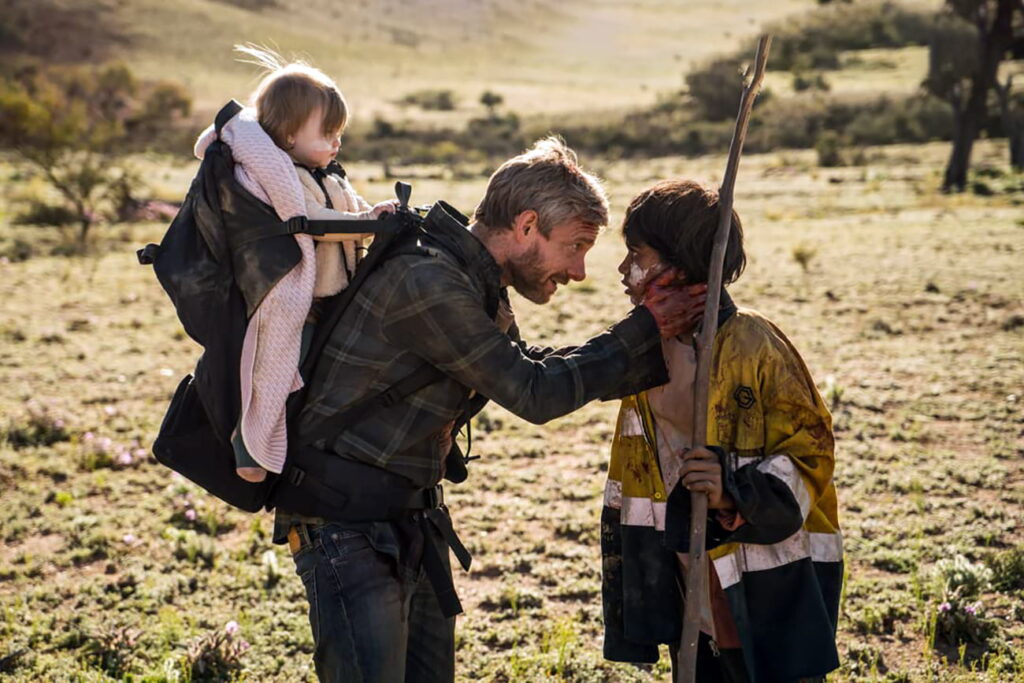Adverts
Cinema has always been a mirror of society's deepest fears and desires, and few themes capture the human imagination as intensely as apocalyptic scenarios.
From the devastation caused by uncontrollable natural forces to the self-destruction triggered by human conflict, the fascination with the end of the world is a phenomenon that spans cultures and generations. This article delves into this cinematic universe, exploring the reasons behind our almost hypnotic attraction to narratives of chaos and destruction.
Adverts
Through a detailed analysis of films that address the apocalypse, from classics to contemporary productions, it is possible to identify patterns and trends that reveal not only the anxieties of our time, but also a curious hope in reconstruction and renewal.
These stories, full of catastrophes and collapses, often offer more than just entertainment; they invite reflection on human resilience and the ability to adapt in the face of the unknown.
Adverts
Exploring why we are so drawn to images of destruction is a journey that leads us to question human nature and our most primal impulses. Is it a thrill-seeking experience or an unconscious desire to understand our own mortality?
Or perhaps a way to exorcise collective fears by projecting them onto a safe, distant screen? Apocalyptic films offer a safe space to confront these issues, while also captivating us with their grandiose depictions and stunning visual effects.
In addition to delving into the psychological aspects of this fascination, this article also explores the cultural and social impact of apocalyptic narratives in cinema. What is the underlying message of these stories? How do they shape our perception of the future and influence public discourse on topics such as climate change, wars, and pandemics?
Understanding the power of these narratives is crucial to deciphering the role of cinema as a shaper of opinions and a reflection of contemporary concerns.
Ultimately, by deciphering the complexity of apocalyptic scenarios in cinema, we can discover not only what they say about the world we live in, but also what they reveal about ourselves. Through this lens, the apocalypse ceases to be just a vision of destruction and becomes a fertile ground for questions and insights into the human condition. Prepare yourself for a journey through the fascinating and disturbing world of cinematic endings, where the line between destruction and renewal is thin but eternally captivating. 🎬🔥
Related articles:

The Call of the Apocalypse in Cinema
Apocalyptic scenarios have an almost irresistible appeal in cinema, and it’s no coincidence. The post-apocalyptic genre offers a rich palette to explore the fears and anxieties of modern society, allowing for reflection on themes such as survival, humanity and the fragility of civilization. Films such as “Mad Max”, “I Am Legend” and “The Book of Eli” depict devastated worlds where the rules of society have been broken, leaving protagonists to navigate a chaos that challenges their very notions of morality and identity.
Science fiction and apocalypse go hand in hand, as both deal with scenarios that, while unlikely, are absolutely possible within the rules of the fictional universe. These films often serve as social critiques, warning about the dangers of unbridled technology, climate change, or nuclear conflict. Additionally, they offer emotional catharsis, allowing audiences to experience and process fear and hope through impactful narratives and stunning visuals.
The fascination with the apocalypse in cinema can be seen as a form of escapism, but also as a means of exploring human resilience in the face of despair. In times of uncertainty, these stories remind us of the potential for renewal and transformation, even after the most devastating of cataclysms.
Psychology of Chaos: Why Are We Attracted to the End?
The human attraction to chaos and destruction may seem paradoxical, but it is part of a deep psychological drive. The end of the world, as terrifying as it may seem, also offers the promise of a new beginning. At the heart of this attraction is the innate human curiosity to explore the unknown and confront our most primal fears.
Many psychologists argue that the fascination with the apocalypse is linked to a subconscious desire for change. In a world where daily routines can become monotonous and predictable, the idea of an apocalyptic scenario breaks up the monotony, presenting extreme challenges that require creativity and adaptability. This resonates deeply with human psychology, which is constantly stimulated by novelty and change.
Furthermore, apocalyptic scenarios allow for a safe exploration of human fears. In a controlled environment, such as a movie theater, we can experience the end of the world without real consequences, experiencing an adrenaline rush that makes us feel alive. Thus, apocalyptic films become a powerful tool for viewers to connect with their survival instincts and reflect on their own role in an ever-changing world.
Technological Impact and Apocalyptic Scenarios
The relationship between technology and apocalyptic scenarios in cinema is complex and multifaceted. Many apocalyptic films use technology as a catalyst for destruction, exploring fears that scientific advances could spiral out of control and lead to the ruin of civilization. Artificial intelligence, for example, is a recurring theme in films such as “Ex Machina” and “The Terminator,” where intelligent machines threaten to replace or wipe out humanity.
This dystopian vision of technology resonates with contemporary fears about automation, surveillance, and the loss of control over human creations. However, technology is also often portrayed as a means of salvation in these same scenarios. In “Interstellar,” for example, science and technology are central to humanity’s search for a new home, presenting a more optimistic view of the role of technological innovation.
This duality reflects an inherent tension in humanity’s relationship with technology: the perception that it can both destroy and save. Apocalyptic cinema thus serves as a space to explore these ambivalences and reflect on how we can shape a future that balances progress and responsibility.

Exploration of Moral and Ethical Themes
Apocalyptic films often serve as arenas for exploring moral and ethical dilemmas. As social structures are dismantled, characters are often faced with choices that challenge their core beliefs and values. This type of narrative is ripe for philosophical and ethical discussions, offering audiences the opportunity to reflect on what it truly means to be human.
The struggle to survive in a post-apocalyptic world often forces characters to question their notions of good and evil. In “The Walking Dead,” for example, survivors are forced to make difficult decisions to protect their lives and those of their loved ones, often crossing moral lines that once seemed insurmountable. These stories raise questions about sacrifice, loyalty and the true nature of humanity when pushed to its limits.
Furthermore, apocalyptic scenarios allow for an exploration of the complexities of leadership and power. The absence of centralized order often leads to the emergence of new hierarchies and systems of governance, often based on force and intimidation. This creates a rich backdrop for exploring how people deal with power in times of crisis, and how these emerging systems can reflect both the best and the worst of human nature.
The Representation of the Apocalypse in Pop Culture
The representation of the apocalypse in pop culture is one of the richest and most varied, ranging from books and comics to video games and television series. Each medium offers a unique approach to the subject, allowing audiences to experience the end of the world in different ways. Video games like “The Last of Us” and “Fallout” place players in devastated worlds where every decision can mean the difference between life and death, providing an immersive experience that goes beyond the screen.
In comics, works such as “Y: The Last Man” and “Akira” explore post-apocalyptic scenarios with depth and nuance, allowing for more detailed reflection on themes such as identity, survival and the impact of catastrophe on society. Television series such as “The 100” and “Black Mirror” also offer intriguing and often bleak visions of the future, challenging audiences to consider the implications of human choices on the fate of the world.
The apocalypse in pop culture not only entertains, but also provokes reflection and discussion, encouraging audiences to consider their own beliefs and values regarding the future. By exploring the unknown and the fearful, these narratives offer a way to mentally prepare ourselves for any eventuality, making us more resilient and aware of the impact of our actions on the world around us.
- Mad Max
- I Am Legend
- The Book of Eli
- Ex Machina
- The Terminator
- Interstellar
- The Walking Dead
- The Last of Us
- Fallout
- Y: The Last Man
- Akira
- The 100
- Black Mirror

Conclusion
The fascination with the end of the world, manifested in apocalyptic scenarios in cinema, reveals an intriguing facet of the human psyche. Films that explore chaos and destruction captivate us precisely because they tap into our deepest fears and our innate curiosity about the unknown. This interest is not only a search for adrenaline, but also an opportunity to reflect on the human condition and the frailties of civilization.
Through apocalyptic narratives, we are challenged to confront existential questions about purpose, morality, and survival. Furthermore, these films often mirror contemporary concerns such as climate change, war, and pandemics, becoming a mirror of social anxieties. Indeed, by presenting a world in ruins, cinema offers us a safe space to explore scenarios of loss and regeneration. 🌍
Ultimately, the human attraction to apocalyptic scenarios in cinema lies in our ability to imagine new beginnings. These stories not only entertain, but also allow us to vicariously experience reconstruction and hope. Thus, we continue to be drawn to these films not only for the visual spectacle, but for the promise of rebirth that they, paradoxically, contain.




